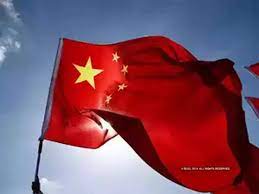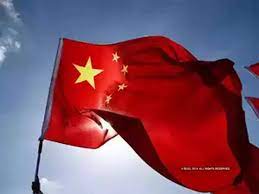
The pace of rise of factory gate prices in the month of May in China was the fastest in 12 years because of a surge in commodity prices which added on to the global price pressures even as policy makers are trying to reignite growth of economies from the Covid-19 induced slump.
There are increasing worries among investors that the stimulus measures implemented by government in response to the pandemic could result in rise in global inflation and consequently prompt central banks to tighten policy which in turn can slow down economic recovery.
The National Bureau of Statistics (NBS) of China said in a statement that the country’s producer price index (PPI) surged 9.0 per cent in May compared to a low base for the same month a year ago primarily because of large rise in price of crude oil, iron ore and non-ferrous metals.
Analysts had expected to the PPI to surge by 8.5 per cent following a 6.8 per cent rise in April.
Its biggest year-on-year increase in eight months was noted in consumer prices in May but was lower than analysts’ expectations as well as the 3 per cent target set by the Chinese government. However the rise in PPI has not yet seeped through to consumer inflation which means that it would potentially not be a cause of worry for the People's Bank of China.
"Producer price inflation is probably close to a peak...we don't expect (consumer price inflation) to rise much above 2% in the coming quarters. As such, (the data) is unlikely to trigger any shift in monetary policy," said Julian Evans-Pritchard, senior China economist at Capital Economics.
PPI would likely peak, Nie Wen, chief economist at Hwabao Trust, also said. "The worry is PPI may hover at an elevated level for an extended period of time, which would create economic headaches if mid- or downstream firms fail to absorb higher costs," Wen however added.
On a monthly basis, the PPI rose 1.6%, up from a 0.9% uptick in April.
There was a 10.6 per cent month-on-month surge in the prices in the coal mining and the washing sector as coal-fired power plants stock piled thermal coal to meet surging electricity demand during the summer peak, said Dong Lijuan, senior statistician at the NBS.
So far this year there has been a surge in the prices for commodities including coal, steel, iron ore and copper which affect the PPI primarily because of post-lockdown recoveries in demand and ample global liquidity.
China's central bank has said China's producer price inflation in the second and third quarters could be further driven up because of higher commodity prices and low bases last year.
Measures to cool down the red hot commodity prices and to ensure that such surge in prices is not passed on to the customers have been promised by Chinese policymakers. Price controls of iron ore, copper, corn and other commodities would be strengthened by China, said the state planner.
(Source:www.investing.com)
There are increasing worries among investors that the stimulus measures implemented by government in response to the pandemic could result in rise in global inflation and consequently prompt central banks to tighten policy which in turn can slow down economic recovery.
The National Bureau of Statistics (NBS) of China said in a statement that the country’s producer price index (PPI) surged 9.0 per cent in May compared to a low base for the same month a year ago primarily because of large rise in price of crude oil, iron ore and non-ferrous metals.
Analysts had expected to the PPI to surge by 8.5 per cent following a 6.8 per cent rise in April.
Its biggest year-on-year increase in eight months was noted in consumer prices in May but was lower than analysts’ expectations as well as the 3 per cent target set by the Chinese government. However the rise in PPI has not yet seeped through to consumer inflation which means that it would potentially not be a cause of worry for the People's Bank of China.
"Producer price inflation is probably close to a peak...we don't expect (consumer price inflation) to rise much above 2% in the coming quarters. As such, (the data) is unlikely to trigger any shift in monetary policy," said Julian Evans-Pritchard, senior China economist at Capital Economics.
PPI would likely peak, Nie Wen, chief economist at Hwabao Trust, also said. "The worry is PPI may hover at an elevated level for an extended period of time, which would create economic headaches if mid- or downstream firms fail to absorb higher costs," Wen however added.
On a monthly basis, the PPI rose 1.6%, up from a 0.9% uptick in April.
There was a 10.6 per cent month-on-month surge in the prices in the coal mining and the washing sector as coal-fired power plants stock piled thermal coal to meet surging electricity demand during the summer peak, said Dong Lijuan, senior statistician at the NBS.
So far this year there has been a surge in the prices for commodities including coal, steel, iron ore and copper which affect the PPI primarily because of post-lockdown recoveries in demand and ample global liquidity.
China's central bank has said China's producer price inflation in the second and third quarters could be further driven up because of higher commodity prices and low bases last year.
Measures to cool down the red hot commodity prices and to ensure that such surge in prices is not passed on to the customers have been promised by Chinese policymakers. Price controls of iron ore, copper, corn and other commodities would be strengthened by China, said the state planner.
(Source:www.investing.com)














